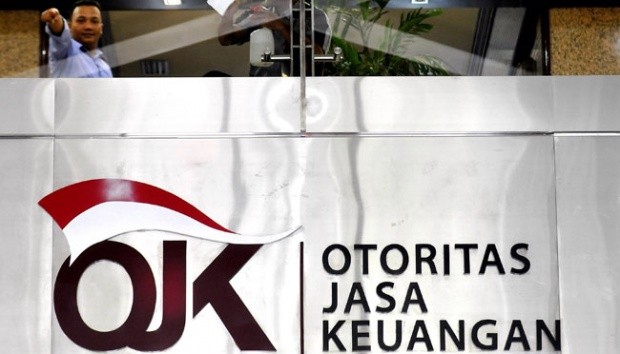Popular Reads
Top Results
Can't find what you're looking for?
View all search resultsPopular Reads
Top Results
Can't find what you're looking for?
View all search resultsDual credit reporting system: A game changer?
SLIK, expected to be fully functional in 2018, marks the beginning of new era in the country’s credit reporting system. Not only does the new regime promise to provide a more robust, reliable and higher-quality performance, but it will also give private credit bureaus (PCB) the opportunity to tap into its database
Change text size
Gift Premium Articles
to Anyone
W
hen the Financial Services Authority (OJK) announced last year that it would develop a new credit reporting system, called the Financial Information Service System (SLIK), a new phase of a more mature credit system of notification emerged in Indonesia. Over the past 4 decades, there was only one public credit registry, namely the Debtor Information System (SID), as a mainstay system on which millions of lending decisions were based.
The SID is basically a system that collects comprehensive information on each debtor registered with financial institutions in Indonesia. The information is supplied by the institutions, such as banks and financing companies, mostly on a mandatory basis. In return, the institutions can freely tap the SID database to gather necessary data before they make a decision on granting a loan. This process is known as BI checking in everyday terms.
The incorporation of the OJK in 2012 provides a strong foundation for a better financial industry in Indonesia. Under Act No. 21 of 2011, the OJK effectively takes over some functions formerly held by the Central Bank (BI); one of them is the responsibility for regulation, supervision and the development of a credit bureau.
SLIK, expected to be fully functional in 2018, marks the beginning of new era in the country’s credit reporting system. Not only does the new regime promise to provide a more robust, reliable and higher-quality performance, but it will also give private credit bureaus (PCB) the opportunity to tap into its database.
The term PCB is probably something most of us have never heard of in Indonesia. However it is remarkably popular in developed countries like the US, UK and Australia. A PCB is not entirely the same as a credit rating agency, such as Moody, S&P or Fitch Rating. While the previous researches and collects consumer credit information, the latter focuses on debt instruments issued by governments, municipalities or corporations.
The OJK’s decision to allow private credit bureaus to operate in Indonesia means the country will enter a new era of dual credit reporting. Under such a system, lending institutions can rely on the tools provided by the PCB in addition to the debtor report generated from the SLIK. We believe that this can benefit the country’s lending industry in at least three ways.
First, from an institutional point of view, financial institutions subscribing to the service provided by the PCB will get more accurate and deeper information about a prospective borrower, enabling them to make a more informed lending decision. A better decision on who should be granted a loan will have a great impact on the non-performing loan ratio, something financial institutions always like to keep low.
This is possible since the PCB will typically combine the data they extract from the public credit registry (the SLIK) with a proprietary formula and algorithm to generate a credit score for each borrower. One can imagine that the data and information will be more insightful and comprehensive.
Second, from an individual consumer’s point of view, as people become more credit-savvy, they tend to be more curious about their credit score. Until now, nobody can be bothered to do BI checking on themselves, and only few even know how to do it. However, as our economy grows, so does our credit need, and knowledge about how we look in the eyes of lending institutions becomes imperative. It can be expected that typical PCBs will provide a service to the individual consumer that allows them to receive a regular report on their credit score. This would guide the consumer in any actions that may impact their score. Higher credit scores are worth pursuing as they mean possibly lower interest rates, better chances of approval and higher limits.
Third, from the industry point of view, the dual credit reporting system will translate into new business opportunities in the form of various PCBs incorporation. PCBs emergence, each with their own method of data provision, matching algorithm and formula to generate the scores also creates a new playing field for the likes of analysts, researchers and scientists in the area of credit scoring. This will benefit the whole industry, as consumers and institutions will always opt for credit scoring reports produced by PCBs with excellent track records for accuracy and insightful services.
In summary, the OJK’s move to enforce the dual credit reporting system is a step in the right direction toward a more robust credit industry. The SLIK system, which eventually will also feature borrower information registered at the smallest rural banks, is something to look forward to.
***
The author is a business technology consultant and investment practitioner who holds an MSc in Engineering with Finance from University College London (UCL) under the LPDP Scholarship
---------------
We are looking for information, opinions, and in-depth analysis from experts or scholars in a variety of fields. We choose articles based on facts or opinions about general news, as well as quality analysis and commentary about Indonesia or international events. Send your piece to community@jakpost.com.










